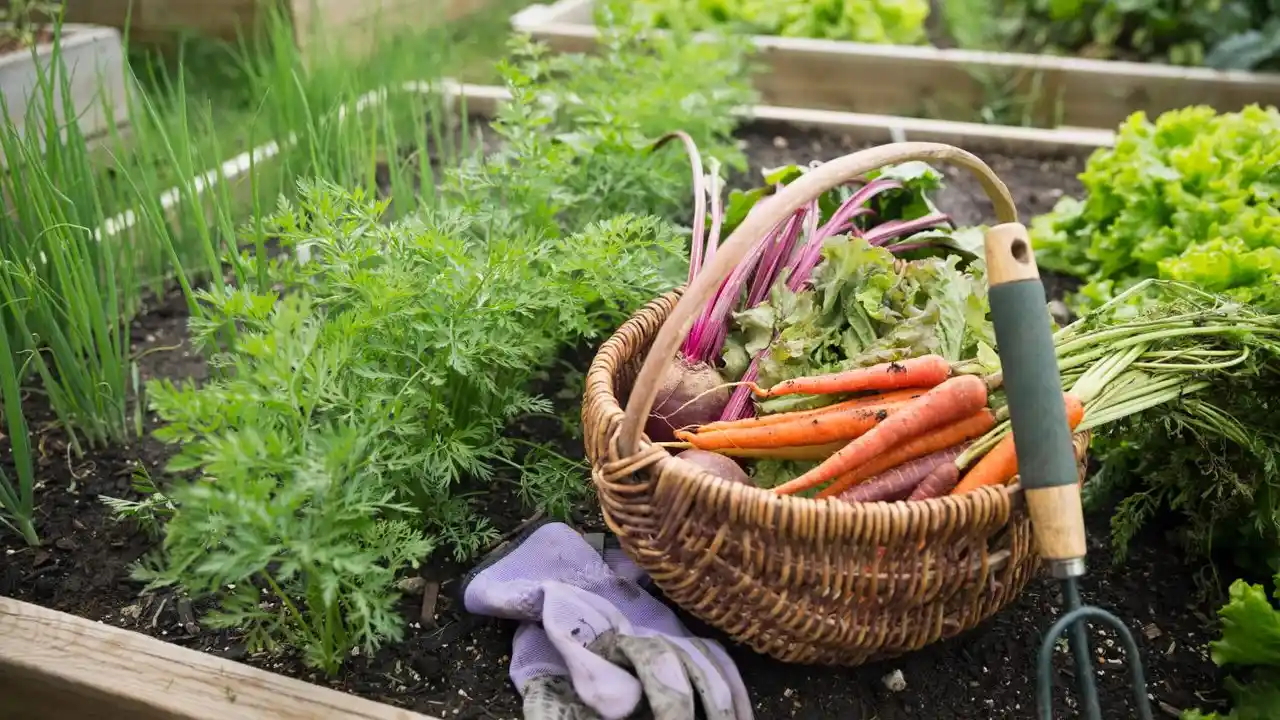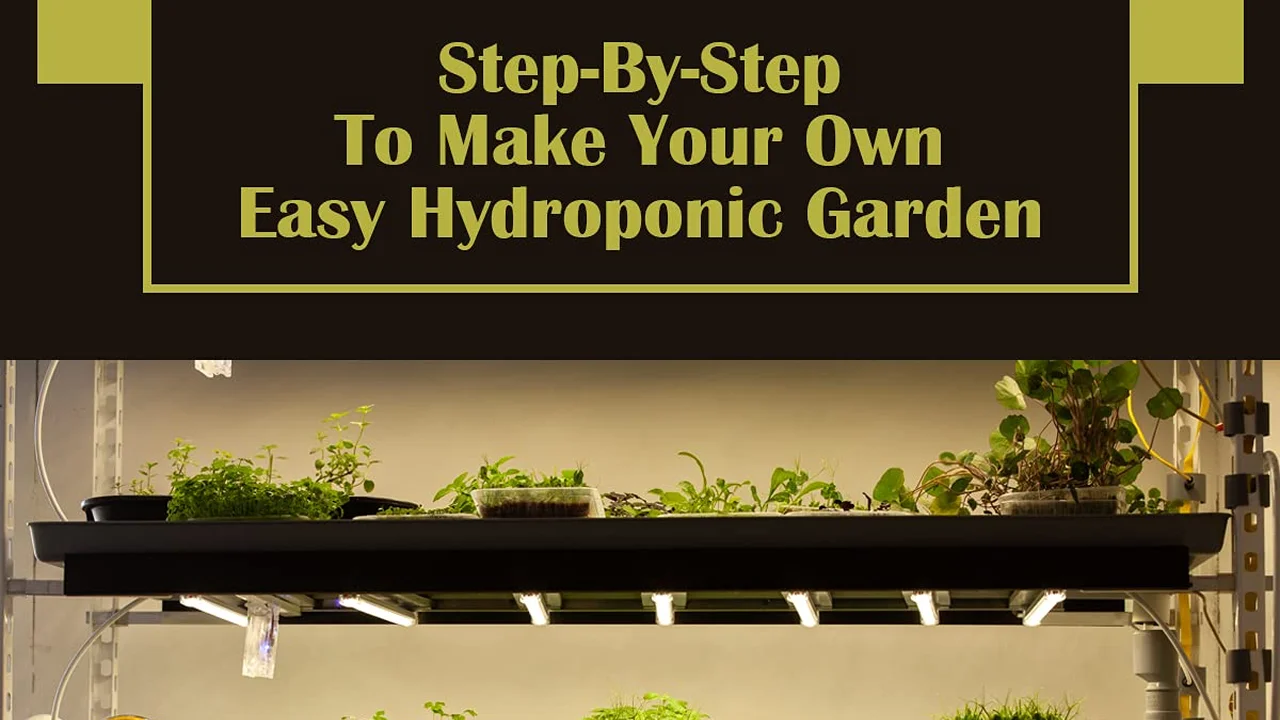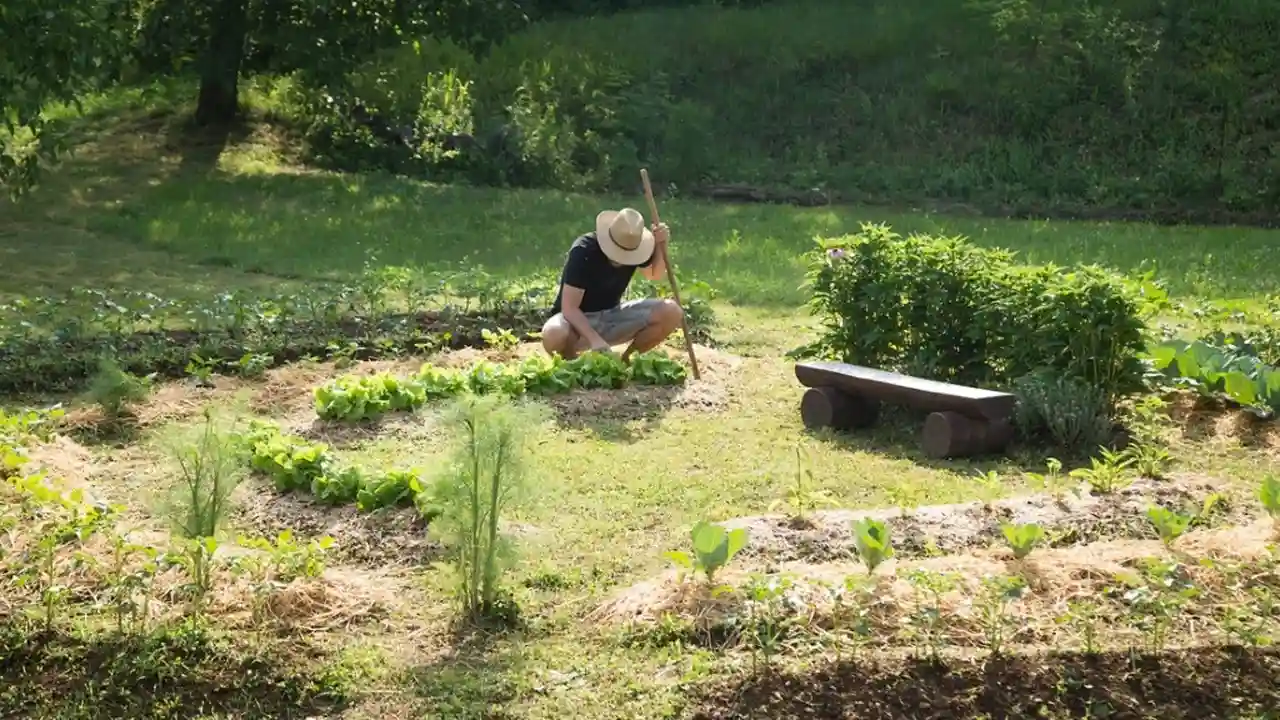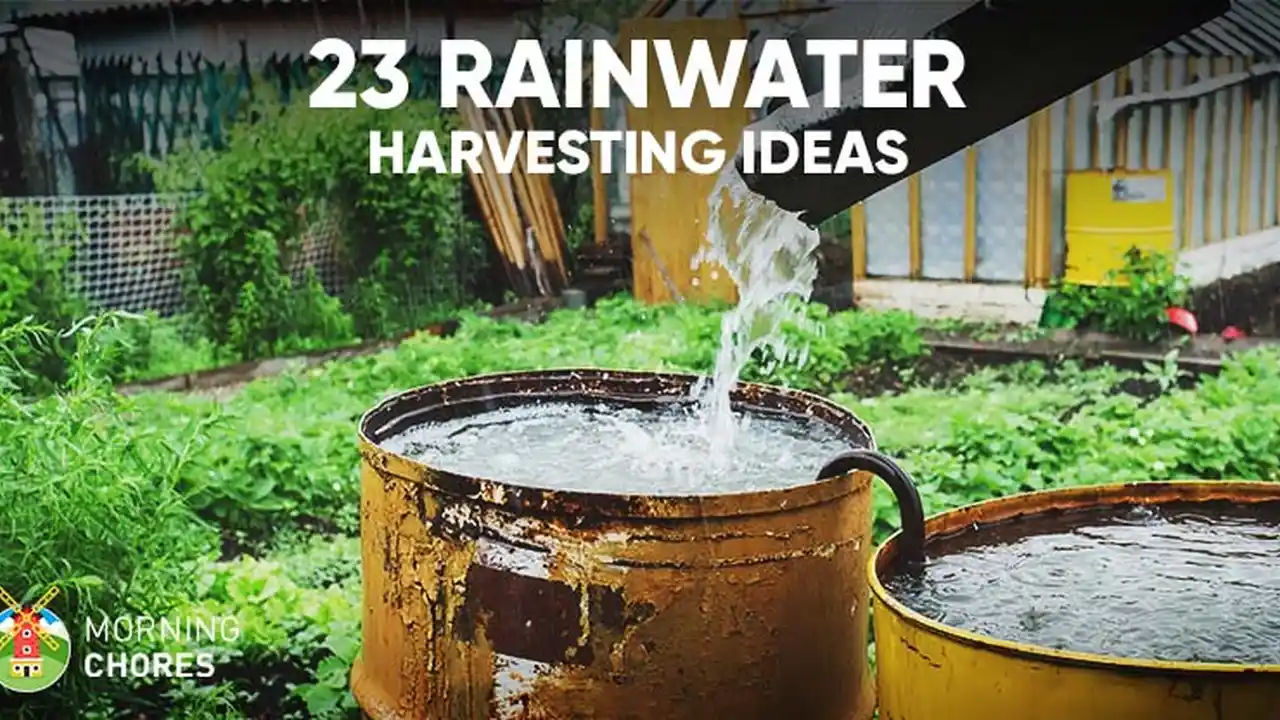Gardening for Mental Wellness 5 Therapeutic Benefits
Discover the 5 therapeutic benefits of gardening for mental wellness. Connect with nature and reduce stress.

Gardening for Mental Wellness 5 Therapeutic Benefits
Hey there, fellow plant enthusiasts and curious minds! Have you ever noticed how a simple stroll through a garden, or even just tending to a potted plant on your windowsill, can lift your spirits? It's not just your imagination. Gardening, in its many forms, offers a treasure trove of benefits for our mental well-being. It's more than just growing plants; it's about nurturing ourselves, finding peace, and connecting with something truly fundamental. Let's dig into five amazing ways gardening can boost your mental health, and then we'll explore some practical ways to get started, including some cool tools and setups that can make your journey even more rewarding.
Stress Reduction and Anxiety Relief Through Gardening
Life can be a whirlwind, right? Deadlines, responsibilities, constant notifications – it's easy to feel overwhelmed. That's where gardening steps in as a powerful antidote. The act of gardening is inherently mindful. When you're focused on planting a seed, watering a thirsty plant, or gently pruning a branch, your mind is fully engaged in the present moment. This focus helps to quiet the incessant chatter of daily worries and anxieties. It's a form of active meditation, where your hands are busy, and your mind can find a much-needed break.
Studies have even shown that interacting with soil can expose us to Mycobacterium vaccae, a friendly bacterium that has been found to increase serotonin levels in the brain. Serotonin is a natural antidepressant, so literally getting your hands dirty can make you feel happier! The rhythmic, repetitive motions involved in gardening – digging, weeding, watering – can also be incredibly soothing. It’s a gentle, low-impact activity that allows you to release tension and find a sense of calm. Think of it as a natural stress ball, but one that yields beautiful results.
Boosting Mood and Combating Depression with Greenery
Beyond just reducing stress, gardening has a remarkable ability to elevate our mood and even help in the fight against depression. There's a profound sense of accomplishment that comes from nurturing something from a tiny seed to a thriving plant. Witnessing growth, seeing the first bud, or harvesting your own produce provides tangible evidence of your efforts and success. This sense of achievement can significantly boost self-esteem and provide a much-needed sense of purpose, especially for those struggling with feelings of hopelessness.
Furthermore, gardening often involves spending time outdoors, which means more exposure to natural sunlight. Sunlight is crucial for vitamin D production, which plays a vital role in mood regulation. It also helps regulate our circadian rhythm, improving sleep quality, which in turn has a positive impact on mood. Even if you're gardening indoors, the presence of living plants can create a more vibrant and positive environment. The colors, the scents, and the sheer vitality of plants can have a subtle yet powerful uplifting effect on our spirits.
Enhancing Cognitive Function and Focus Through Horticultural Therapy
Gardening isn't just good for your emotional state; it's a fantastic workout for your brain too! It requires planning, problem-solving, and decision-making. You need to consider what plants will thrive in your specific conditions, how much water they need, when to fertilize, and how to deal with pests. These mental exercises help to keep your brain sharp and engaged. It's like a puzzle, but with living pieces.
For individuals recovering from illness or injury, or those with cognitive impairments, horticultural therapy is often used as a rehabilitative tool. The structured activities in gardening can improve attention span, memory, and problem-solving skills. Even for healthy individuals, the focused attention required for tasks like pruning or identifying plant diseases can improve concentration and reduce mental fatigue. It's a gentle yet effective way to keep your mind active and agile.
Fostering Connection and Community Through Shared Green Spaces
While gardening can be a wonderfully solitary activity, it also offers incredible opportunities for social connection and community building. Think about community gardens, gardening clubs, or even just sharing tips and produce with neighbors. These interactions can combat feelings of loneliness and isolation, which are significant contributors to mental health issues.
Working alongside others in a shared green space fosters a sense of belonging and mutual support. You can learn from experienced gardeners, share your own successes and failures, and celebrate the bounty of your collective efforts. Even online gardening communities can provide a valuable network of support and inspiration. Sharing your passion for plants can lead to meaningful friendships and a stronger sense of connection to the world around you.
Promoting Physical Activity and Overall Well-being for Gardeners
Let's not forget the physical aspect! Gardening is a fantastic form of low-impact exercise. Digging, planting, weeding, and watering all involve movement and can help you burn calories, strengthen muscles, and improve flexibility. It's a much more enjoyable way to stay active than hitting the gym for some people, and you get the added bonus of being outdoors and connecting with nature.
Regular physical activity is well-known to reduce symptoms of anxiety and depression, improve sleep, and boost overall energy levels. When you combine the physical benefits with the mental and emotional ones, gardening becomes a holistic activity that contributes significantly to your overall well-being. It's a gentle way to keep your body moving, which in turn supports a healthy mind.
Getting Started with Your Mental Wellness Garden: Essential Tools and Setup
Feeling inspired to get your hands dirty? Great! You don't need a huge backyard or a massive budget to start experiencing the mental health benefits of gardening. Here are some practical ways to begin, along with some product recommendations that can make your journey smoother and more enjoyable.
Small Space Gardening Solutions for Urban Dwellers
Even if you live in an apartment, you can still create a thriving green space. Container gardening is your best friend here. You can grow herbs, small vegetables, or beautiful flowers on a balcony, patio, or even a sunny windowsill.
- Self-Watering Planters: These are fantastic for beginners or busy individuals. They have a reservoir that holds water, slowly releasing it to the plant's roots, reducing the need for frequent watering.
- Product Recommendation: Lechuza CUBE Cottage 30 Self-Watering Planter.
- Usage Scenario: Perfect for herbs in the kitchen or small flowering plants on a balcony.
- Comparison: More expensive than basic plastic pots, but saves time and ensures consistent moisture.
- Estimated Price: $50-$80 USD.
- Vertical Garden Towers: If floor space is limited, go up! Vertical planters allow you to grow multiple plants in a small footprint.
- Product Recommendation: GreenStalk Original 5-Tier Vertical Planter.
- Usage Scenario: Ideal for growing strawberries, leafy greens, or a variety of herbs on a small patio.
- Comparison: Requires more initial setup than individual pots but maximizes yield per square foot.
- Estimated Price: $150-$200 USD.
Indoor Gardening for Year-Round Greenery and Mental Boost
Don't have outdoor space or want to garden even in winter? Indoor gardening is a fantastic option. It brings nature directly into your living space, providing constant access to its calming effects.
- Smart Indoor Gardens: These systems take a lot of the guesswork out of gardening, making them perfect for beginners. They often include LED grow lights, self-watering features, and even app control.
- Product Recommendation: Click & Grow Smart Garden 9.
- Usage Scenario: Growing fresh herbs and salad greens right on your kitchen counter.
- Comparison: Higher upfront cost than traditional indoor pots, but offers convenience and higher success rates.
- Estimated Price: $200-$250 USD.
- LED Grow Lights: If you have existing pots but not enough natural light, a simple LED grow light can make all the difference.
- Product Recommendation: Barrina T5 LED Grow Lights (2ft, 4-pack).
- Usage Scenario: Providing supplemental light for houseplants or starting seeds indoors.
- Comparison: More versatile and energy-efficient than older fluorescent grow lights.
- Estimated Price: $40-$60 USD.
Ergonomic Tools for Comfortable and Accessible Gardening
Gardening should be enjoyable, not painful! Investing in ergonomic tools can make a huge difference, especially if you have physical limitations or just want to garden more comfortably.
- Ergonomic Hand Tools: Look for tools with comfortable, non-slip grips and designs that reduce strain on your wrists and hands.
- Product Recommendation: Fiskars Ergo Trowel and Cultivator Set.
- Usage Scenario: Planting small plants, weeding, and loosening soil in containers or raised beds.
- Comparison: Superior comfort and reduced hand fatigue compared to basic, poorly designed tools.
- Estimated Price: $20-$30 USD for a set.
- Garden Kneeler and Seat: Save your knees and back with a versatile kneeler that can also flip over to become a comfortable seat.
- Product Recommendation: Ohuhu Garden Kneeler and Seat with Tools Pouch.
- Usage Scenario: Weeding low beds, planting, or just taking a comfortable break while working.
- Comparison: Much more comfortable and supportive than kneeling directly on the ground or using a small cushion.
- Estimated Price: $30-$50 USD.
Composting Solutions for Sustainable and Mindful Gardening
Composting is not only great for your plants and the environment, but the process itself can be incredibly satisfying and mindful. Turning kitchen scraps into rich soil is a tangible way to participate in nature's cycle.
- Indoor Compost Bin (Bokashi): For apartment dwellers, a Bokashi system allows you to compost food scraps indoors without odors.
- Product Recommendation: SCD Probiotics All Seasons Indoor Composter Kit.
- Usage Scenario: Composting all food waste, including meat and dairy, in a small indoor space.
- Comparison: Faster and less odor-prone than traditional vermicomposting for indoor use.
- Estimated Price: $70-$100 USD.
- Outdoor Tumbler Composter: If you have a yard, a tumbler makes turning your compost easy and efficient.
- Product Recommendation: Compost Wizard Jr. Tumbler.
- Usage Scenario: Composting yard waste and kitchen scraps for a medium-sized garden.
- Comparison: Easier to turn and aerate than static compost bins, leading to faster decomposition.
- Estimated Price: $100-$150 USD.
Embracing the Journey of Growth and Well-being
Gardening for mental wellness isn't about having the perfect garden or growing the biggest vegetables. It's about the process, the connection, and the quiet moments of peace you find along the way. It's about learning, adapting, and celebrating small victories. Whether you start with a single succulent, a window box of herbs, or a full-blown vegetable patch, the benefits for your mind and spirit are immense.
So, go ahead, get your hands dirty. Plant something. Watch it grow. And as you nurture your plants, you'll find you're nurturing yourself too. Happy gardening!
:max_bytes(150000):strip_icc()/277019-baked-pork-chops-with-cream-of-mushroom-soup-DDMFS-beauty-4x3-BG-7505-5762b731cf30447d9cbbbbbf387beafa.jpg)






